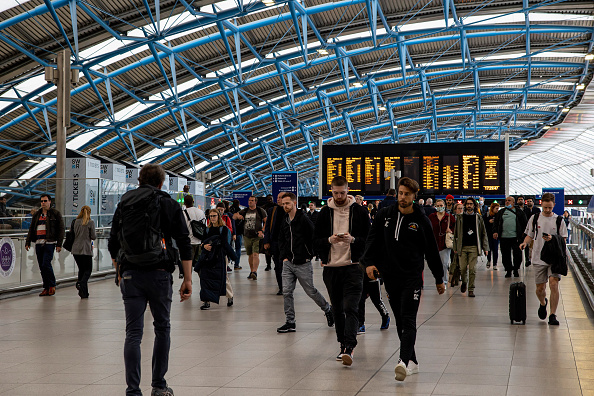Shapps confirms plan to use agency workers to replace striking rail staff

Transport secretary Grant Shapps has confirmed he will use agency workers to cover for striking rail staff if industrial action drags on throughout the summer.
Shapps today said the government was looking at a “look at a full range of options” to minimise disruption from striking workers, adding that people with “transferable skills” could be asked to fill in.
There have also been widespread media reports that ministers are looking at implementing legislation that would mean a minimum number of rail workers have to work throughout strikes.
“Transferable skills means that people will be able to stand in for each other where they have the appropriate level of training and experience,” he said.
“That is subject to a more straightforward secondary legislation process that will be much quicker if the strike drags on. If they do, agency working will be something which will become available as well.”
More than 40,000 members of the National Union of Rail, Maritime and Transport Workers (RMT) will walk off the job on 21, 23 and 25 June in what are being described as the largest rail strikes in 30 years.
The crippling strike action will take place across 13 rail companies and National Rail, with around half of all UK lines set to be closed.
The RMT’s strikes are in protest to sector-wide pay freezes throughout Covid and Network Rail’s decision to cut 2,500 jobs.
Shapps tried to appeal to rail workers today, saying the industrial action will be “an act of self harm”.
“Unions claim this strike is about a pay freeze. This is wrong. We are not imposing a pay freeze now, Covid is in the past,” he said.
“So, I say to the workforce: ‘Your union bosses have driven you to the verge of a national strike under false pretences. And rather than protect your jobs, they are actually threatening your jobs’.”
This industrial action will disrupt events such as the Glastonbury Festival and Elton John’s concert in Hyde Park, while there are also concerns around disruption to GCSE school exams.
The Centre for Economics and Business Research said the rail strikes will deliver a £91m blow to the economy, with London disproportionately affected.